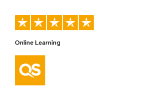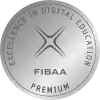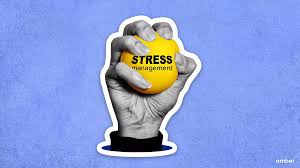
Stress Management
The Stress Management course is designed to equip students with the knowledge and skills necessary to effectively identify, understand, and manage stress in various aspects of life. Through a combination of theoretical frameworks, practical techniques, and self-reflection exercises, students will learn how to navigate stressors and cultivate resilience for improved overall well-being.
Overview

Stress Management
Course Learning Outcomes (CLOs) and SLOs
Course Learning Outcomes (CLOs) typically include:
Understanding Stress: Gain an understanding of the physiological, psychological, and emotional aspects of stress, including its impact on health and well-being.
Stress Reduction Techniques: Learn evidence-based techniques and practices for stress reduction, such as relaxation techniques, mindfulness, and cognitive-behavioral strategies.
Healthy Coping Mechanisms: Develop skills in identifying and implementing healthy coping mechanisms to manage stress, including time management, assertiveness training, and social support.
Lifestyle Changes: Explore lifestyle factors that influence stress levels, such as nutrition, exercise, sleep, and work-life balance, and strategies to optimize these areas.
Student Learning Outcomes (SLOs) are specific goals for students, such as:
Stress Assessment: Assess personal stress levels and triggers using self-assessment tools and techniques discussed in the course.
Effective Stress Reduction: Implement effective stress reduction techniques and strategies tailored to individual needs and preferences.
Resilience Building: Develop resilience and adaptive coping skills to navigate stressors and challenges effectively.
Health Promotion: Promote overall health and well-being by managing stress effectively and incorporating stress management techniques into daily life.

Benefits
With AI, the world is your oyster! It is an emerging field, rapidly growing, ever evolving and watched with a keen eye by industries and markets globally. There are many benefits to an education in AI:
In demand Career
With a Bachelor in artificial intelligence you are equipped with in-demand skills in the rapidly growing field of AI. Knowledge of developing AI systems, data analysis and AI techniques makes you valuable across industries, right from healthcare, finance, tech and more. This degree prepares you for career that has multiple options for diversification. AI professionals include AI engineers, data scientists, machine learning specialists, AI consultants, researchers and more. AI is transformative technology that is revolutionising the world. With an education background in AI, you are set up in an in-demand career field with an exciting future ahead!
Innovation and advancement
Applied AI is all about finding solutions and using AI systems to make life simpler. Applied AI draws on its solid foundation in Computer Science to analyse and provide solutions for real world challenges. You are prepared to address complex problems and contribute meaningfully in domains like healthcare diagnostics, fraud detection, autonomous vehicles, personalised recommendations and more. Being able to apply AI techniques for solving tasks makes for an extremely rewarding and impactful job role!
Solving real world problems
AI aims to constantly bridge the gap between natural intelligence and machine learning - it is a field of cutting edge research, innovation and advancing technology. This makes it ever evolving, with new algorithms, models and techniques being developed. By studying AI at an undergraduate level, you gain a strong foundation in AI fundamentals that help you better understand the latest advancements. You step into a career that empowers you to push the boundaries of AI, contribute to research and development and drive innovation in the field.
100% International
Study at your own pace from anywhere in the world
Recommended by 96% of our graduates
According to our latest alumni survey
50,000+ students
enrolled in Germany’s largest university
Study contents
Content
Article Topics
The Science of Stress: Understanding the Effects of Stress on the Body and Mind
Explore the physiological and psychological effects of stress on the body and mind.
Effective Time Management Techniques for Reducing Stress
Share practical tips and strategies for managing time effectively, such as prioritization, delegation, and goal-setting.
The Power of Mindfulness: How Meditation Can Help Reduce Stress
Discuss the benefits of mindfulness meditation, including reduced stress, increased focus, and improved mood.
Stress-Busting Exercise Routine: How Physical Activity Can Help Manage Stress
Highlight the importance of exercise in reducing stress, including physical benefits and tips for incorporating exercise into daily routines.
The Importance of Self-Care: Prioritizing Your Own Wellbeing
Discuss the significance of self-care in managing stress, including self-compassion, boundaries, and relaxation techniques.
Infographics
Stress Management Hierarchy: Prioritizing Tasks and Reducing Anxiety
Visual representation of a hierarchical approach to stress management, highlighting the importance of prioritizing tasks and breaking them down into manageable chunks.
The Science of Sleep: How Lack of Sleep Affects Stress Levels
Illustrate the relationship between sleep deprivation and increased stress levels, with tips for improving sleep quality.
Mindfulness Exercises for Stress Relief
Visual representation of mindfulness exercises, such as deep breathing, body scan, and guided meditation.
Admission
Admission Criteria
Initial Assessment:
"Welcome to our stress management program. Can you tell me a little bit about what brings you here today? How have you been feeling lately?"
"Can you describe your typical day and what triggers your stress?"
"How have you been coping with stress in the past? Have you tried any relaxation techniques or strategies?"
Chief Complaint:
"What are your primary concerns about your stress levels?"
"How do you feel like stress has impacted your daily life and relationships?"
"Are there any specific situations or events that trigger your stress?"
Medical History:
"Have you experienced any physical symptoms related to stress, such as headaches, fatigue, or sleep disturbances?"
"Do you have a history of anxiety or depression?"
"Have you experienced any significant life changes or traumas that may be contributing to your stress?"
Goals and Expectations:
"What are your goals for our time together? What do you hope to achieve through our sessions?"
"How do you envision your life changing as a result of our work together?"
Assessment Tools:
Perceived Stress Scale (PSS)
Depression Anxiety Stress Scales (DASS-21)
Pittsburgh Sleep Quality Index (PSQI)
Generalized Anxiety Disorder 7-item scale (GAD-7)
Interventions:
Relaxation techniques (deep breathing, progressive muscle relaxation, visualization)
Cognitive-behavioral therapy (CBT) techniques (thought recording, reframing, problem-solving)
Mindfulness-based stress reduction (MBSR) exercises
Sleep hygiene techniques
Exercise and physical activity recommendations
Nutrition and lifestyle counseling
Treatment Plan:
Develop a personalized treatment plan with the patient that addresses their specific needs and goals.
Set realistic expectations and goals for the patient's progress.
Schedule follow-up appointments to monitor the patient's progress and make adjustments to the treatment plan as needed.
Careers
Career Path
Stress Management Coach: As a stress management coach, you'll work with clients to identify and address the root causes of their stress, develop coping strategies, and help them build resilience.
Counseling or Psychotherapy: Counselors and psychotherapists help individuals, couples, or groups manage stress, anxiety, and other mental health issues. They use various techniques, such as cognitive-behavioral therapy (CBT), mindfulness-based stress reduction (MBSR), and psychodynamic therapy.
Occupational Health Specialist: Occupational health specialists work with employers to identify and mitigate workplace stressors, develop wellness programs, and provide counseling services to employees.
Wellness Consultant: Wellness consultants help organizations create a healthy work environment by developing wellness programs, conducting stress assessments, and providing coaching services.
Health Educator: Health educators teach people about healthy habits, stress management techniques, and disease prevention strategies. They may work in hospitals, community centers, or private practice.
Mindfulness or Meditation Teacher: Mindfulness and meditation teachers guide individuals in developing mindfulness practices to reduce stress and improve overall well-being.
Yoga or Fitness Instructor: Yoga and fitness instructors can specialize in stress-reducing exercises like yoga, Pilates, or tai chi.
Student reviews
Coming Soon.
Tuition fees
All our study programmes include the following benefits
- Teaching and study material
- Marking of your end-of-module exams
- Monthly live and recorded tutorials
- Use of the online campus
- Individual study coaching
- Online exams
- Career coaching
- Learn English for free
Our global recognition

IU is recognised by WES Canada and U.S., which means your degree can be converted to points in the local system for purposes of immigration, work, or studies.
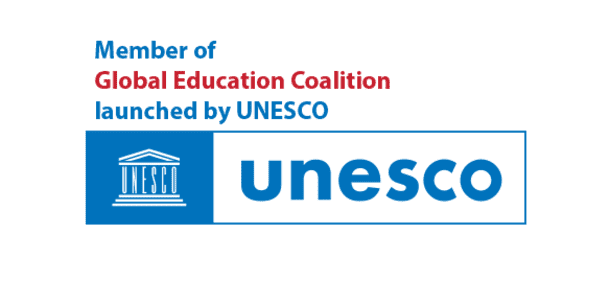
As the first EU institution in UNESCO's Global Education Coalition, IU is committed to ensuring accessible quality education to students in crisis worldwide through free online micro-credentials.
Our company partners
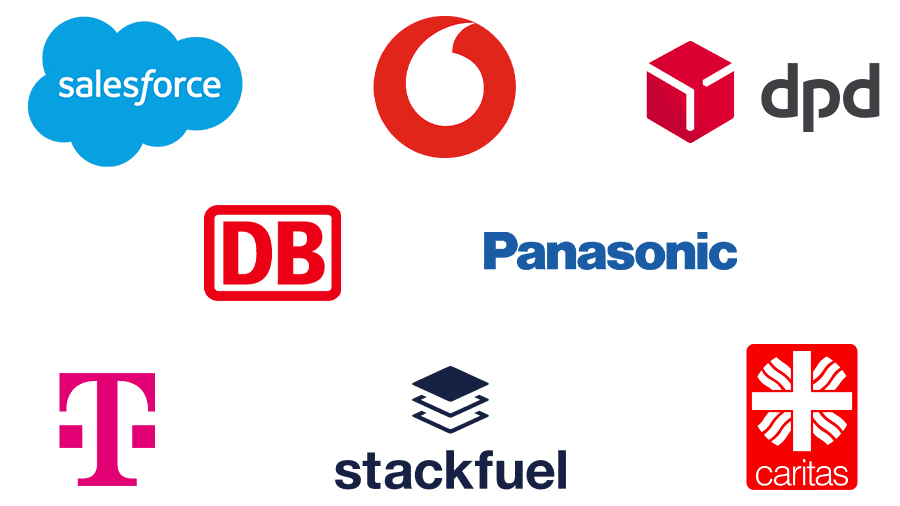
For over 20 years, IU has established partnerships with leading global companies. This offers you the chance to gain firsthand experience through internships and projects and allow us to adapt our learning content to the ever-evolving needs of the labour market. You'll benefit from an education designed to bridge the gap between theory and real-world practice, ensuring your readiness for your future career.
Recognition
Recognition of previous achievements
Have you already completed a training course, studied at a university or gained work experience? Have you completed a course or a learning path through EPIBM LinkedIn Learning, and earned a certificate? Then you have the opportunity to get your previous achievements recognised, and complete your studies at EPIBM sooner.

Save time:
Skip individual modules or whole semesters!
Even before you apply for a study programme, we’ll gladly check whether we can take your previous achievements into account: 100% online, no strings attached. Simply fill in our recognition application form, which you can find under the content section of each study programme's webpage, and upload it via our upload section. You can also e-mail it to us, or send it via post.
Send an email to [email protected] to find out which previous achievements you can get recognised. You can get your previous achievements recognised during your studies.
Recognition files
Autonomous vehicles developer
With AI, the world is your oyster! It is an emerging field, rapidly growing, ever evolving and watched with a keen eye by industries and markets globally. There are many benefits to an education in AI:
That’s why after graduating, you’ll be able to apply your professional skills and knowledge, and work for development teams at any sector you find appealing.


Augmented reality (AR/VR) developer
Virtual (or augmented) reality isn’t all just fun and games, as great and enjoyable as that aspect is. It can also be used for groundbreaking social and psychological research, defensive purposes and therapy.
With an Applied Artificial Intelligence degree from IU University of Applied Sciences, you can take part in this vital field of technological development, and work on a wide variety of interesting projects.
Change what the world thinks about the possibilities that AI offers, and make a real difference in people’s lives, while enjoying every step of the process.
F.A.Q
Frequently Asked Questions
You might also be interested in these study programmes
Accredited and certified







